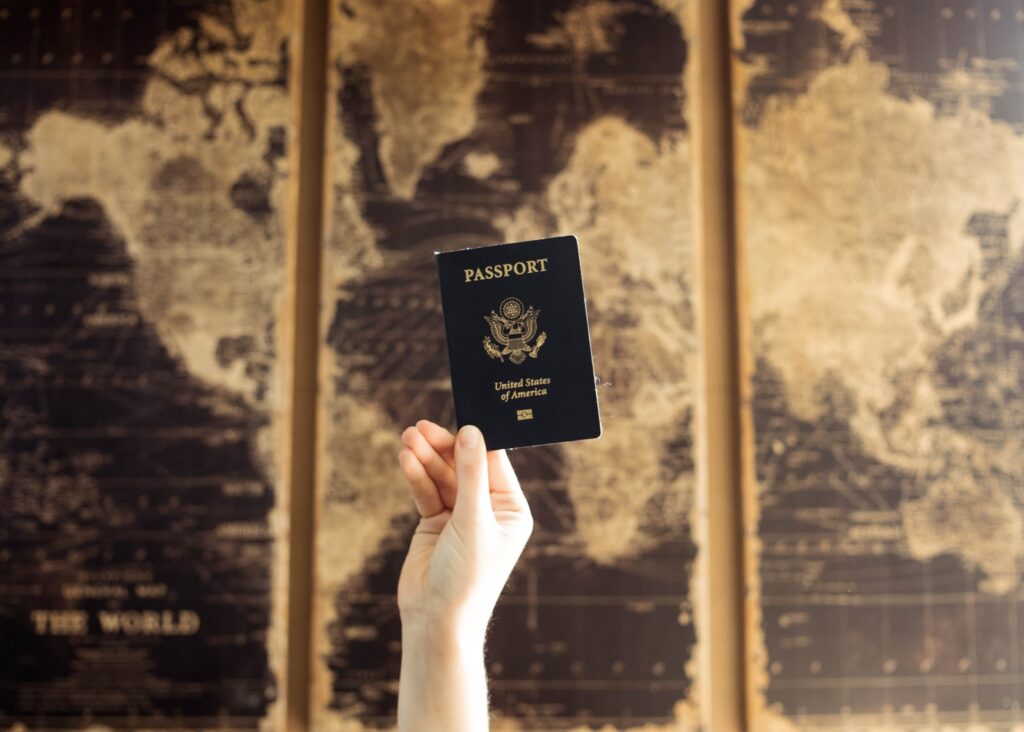Moving to the States – A Complete Checklist for Foreigners
If you have decided to bid adieu to your present home and are in the process of relocating to the United States, you are in the right place.

Photo by Annika Gordon on Unsplash
Whether it’s pursuing an education or work opportunity or shifting permanently, moving to the US requires you to carry out thorough preliminary research so that you know what to expect. From figuring out what documents you need to finding out about housing and job opportunities, it is important that you make a detailed list beforehand for a smooth immigration process.
So before you hop on the wagon of chasing the American Dream, make sure you read this article to gain a comprehensive understanding of the essential things you need to figure out before moving to the States.
Assembling Your Documents

Photo by Trent Erwin on Unsplash
First things first, determine what type of visa you require based on your purpose of immigration. Next, assemble all the documents you need for your visa application, fill any forms required, and make an appointment with the closest US embassy or consulate.
A pro tip is to get all your paperwork professionally translated into English. Whether it’s an education transcript or a birth certificate translation, this will save you a lot of time and energy during your visa process and is requested by the US government.
A list of the essential documents includes a valid passport, personal identification card, birth certificate, financial documents, tax records, attested education degrees, medical and vaccination records, proof of job contract or school offer letters, marriage or divorce certificates, and custody declaration document, if applicable.
Map out all the eligibility requirements, contact your sponsor if any, and factor in ample visa processing time in case of any potential delays.
Choosing Where To Live

Photo by Luke Stackpoole on Unsplash
After sorting out your visa, the next step is choosing a home among the 50 US states. Usually, your personal preference may be dictated by your work or educational commitments.
However, if you have the flexibility to explore other options, some factors to consider are affordability, tax burden, real estate value, crime rate in city and neighborhood, climate and geography, culture, food and recreation options, job and education opportunities, healthcare facilities, public transportation availability, and proximity to family and friends.
Apart from deciding the best place to live in the US, you also need to decide on renting or buying. Usually, lease agreements tend to be on a six months to a one-year basis. However, if you think you need more time to decide, consider short-term rentals to give yourself a chance to explore your surroundings, but be prepared to pay a higher market price.
Setting Up Your Finances
Photo by Michael Longmire on Unsplash
Sorting out your finances is something you need to consider throughout the moving process. The easiest way to get around the States is by opening an American bank account.
Make sure that the financial institution in which you deposit your cash is trustworthy by checking whether it is insured by the Federal Deposit Insurance Corporation or the National Credit Union Administration. It is ideal to make a list of the best banks in the US before narrowing down on which institution gives you the most benefits.
Importantly, familiarise yourself with the tax system since the US has numerous types of taxes that include federal income tax, personal income tax, property tax, sales tax, self-employed tax, and payroll tax. Additionally, some cities and districts may even have their own tax structures.
Furthermore, keep in mind that credit history is a big deal in the US. This constitutes your past financial records and it plays a critical role in obtaining future loans, a house, a car, or applying for credit cards. To maintain a positive credit history, the best advice is to avoid defaulting on your payments.
Getting Health Insurance

Photo by Christina Victoria Craft on Unsplash
Since there is no universal healthcare in the US, it is crucial that you look into a private health insurance plan that gives you the most benefit for your buck.
If your employer doesn’t give health insurance or provides one that is insufficient for you or your family, you need to look into additional plans that offer a suitable monthly premium and coinsurance percentage payment.
You can explore different health insurance plans by shopping in the Health Insurance Marketplace or getting one directly from a private health insurance company. Keep in mind the coverage you want and the price you can afford before zeroing in on your plan. Importantly, make sure that your plan is in line with required government standards.
Finding Work

Photo by Aaron Burden on Unsplash
Working in the US is often viewed as a great opportunity for career progression. But before you embark on a truly rewarding learning experience, there are a few details to bear in mind.
Prior to applying for a job as a non-American citizen, you need to obtain a social security number (SSN) and assemble all necessary documents such as past employment or educational history records along with an American-style resume and cover letter. Also, make sure that the company you apply to is willing to offer visa sponsorship.
If you don’t have a Green Card or a nonimmigrant visa, remember to get a work permit in addition to a work visa. This is known as the Employment Authorization Document (EAD) that confirms your employment authorization for the States.
Searching For The Best Educational Institutions

Photo by Element5 Digital on Unsplash
The US has one of the most diverse student bodies in the world. So if you are moving to the States with your family, be sure to research the local schools and colleges in your preferred state or city.
Schools are usually divided into pre-school, kindergarten, elementary school, middle school, and high school, followed by college or university. For deciding on the best school for your child, consider checking education rankings by state, student test scores, extracurriculars, and how well the school prepares students for further education.
Parting Thoughts

Photo by Nils Nedel on Unsplash
While moving to the US can seem a bit daunting, all you need to do is dedicate ample time and effort. Make sure to double check every document, make a rough timeline and stick to it.
Additionally, make sure you settle any pending commitments at home, such as selling your house, paying outstanding loans or debts, closing your bank account, redirecting your mail, cancel any subscriptions, and hiring a moving company to help with your packing.
We wish you all the best on your new journey to the land where dreams come true!



